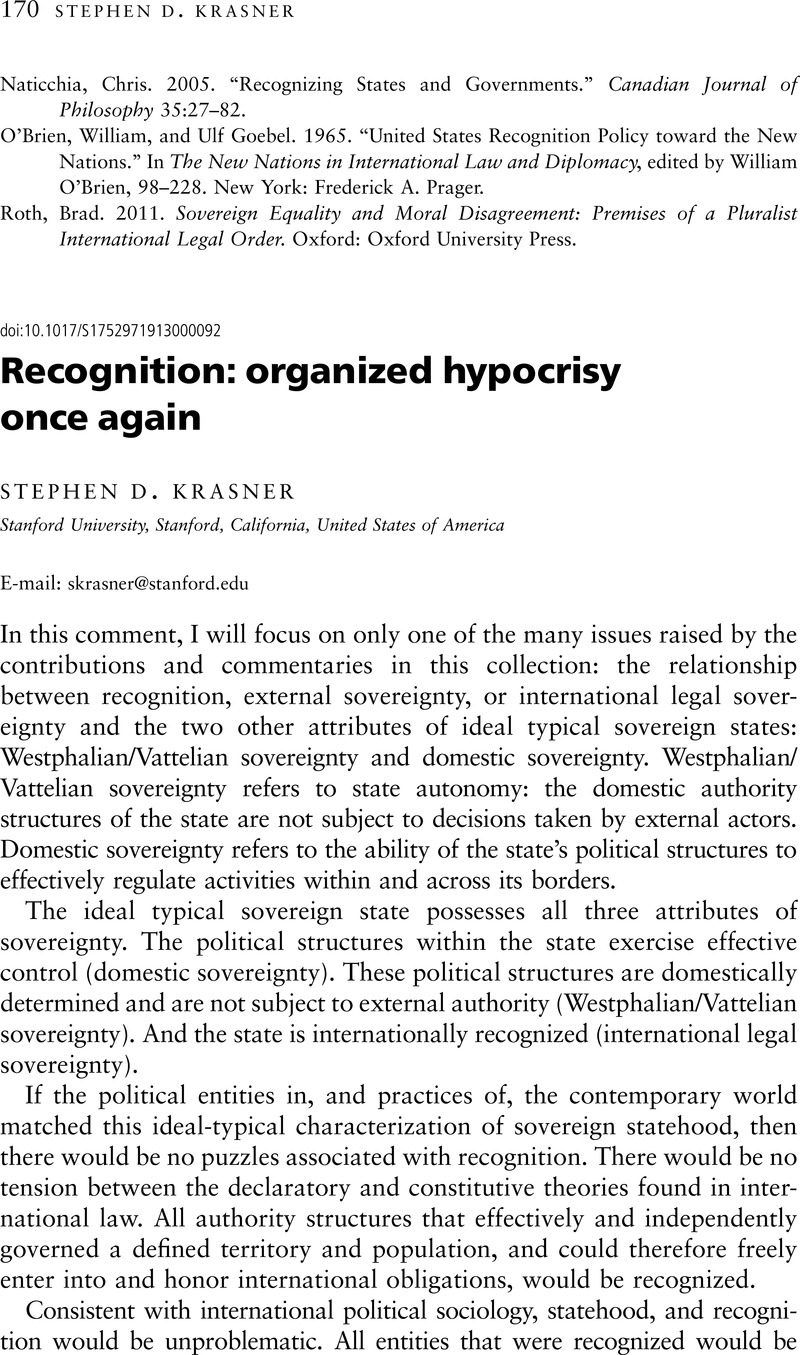Crossref Citations
This article has been cited by the following publications. This list is generated based on data provided by Crossref.
오승희
2017.
Japan’s Struggle for Recognition and Sino–Japanese Diplomatic Normalization : A Recognitive Approach to the One-China Principle.
Korean Political Science Review,
Vol. 51,
Issue. 1,
p.
73.
Griffiths, Ryan D.
2017.
Admission to the sovereignty club: the past, present, and future of the international recognition regime.
Territory, Politics, Governance,
Vol. 5,
Issue. 2,
p.
177.
Tudoroiu, Theodor
2017.
Taiwan in the Caribbean: a case study in state de-recognition.
Asian Journal of Political Science,
Vol. 25,
Issue. 2,
p.
194.
Senn, Martin
and
Troy, Jodok
2017.
The transformation of targeted killing and international order.
Contemporary Security Policy,
Vol. 38,
Issue. 2,
p.
175.
Roe, Michael
2020.
Governance, Policy and Juxtaposition.
p.
289.
Piccolo Koskimies, Emanuela
2022.
Norm Contestation, Sovereignty and (Ir)responsibility at the International Criminal Court.
p.
17.
Kyris, George
2022.
State recognition and dynamic sovereignty.
European Journal of International Relations,
Vol. 28,
Issue. 2,
p.
287.





